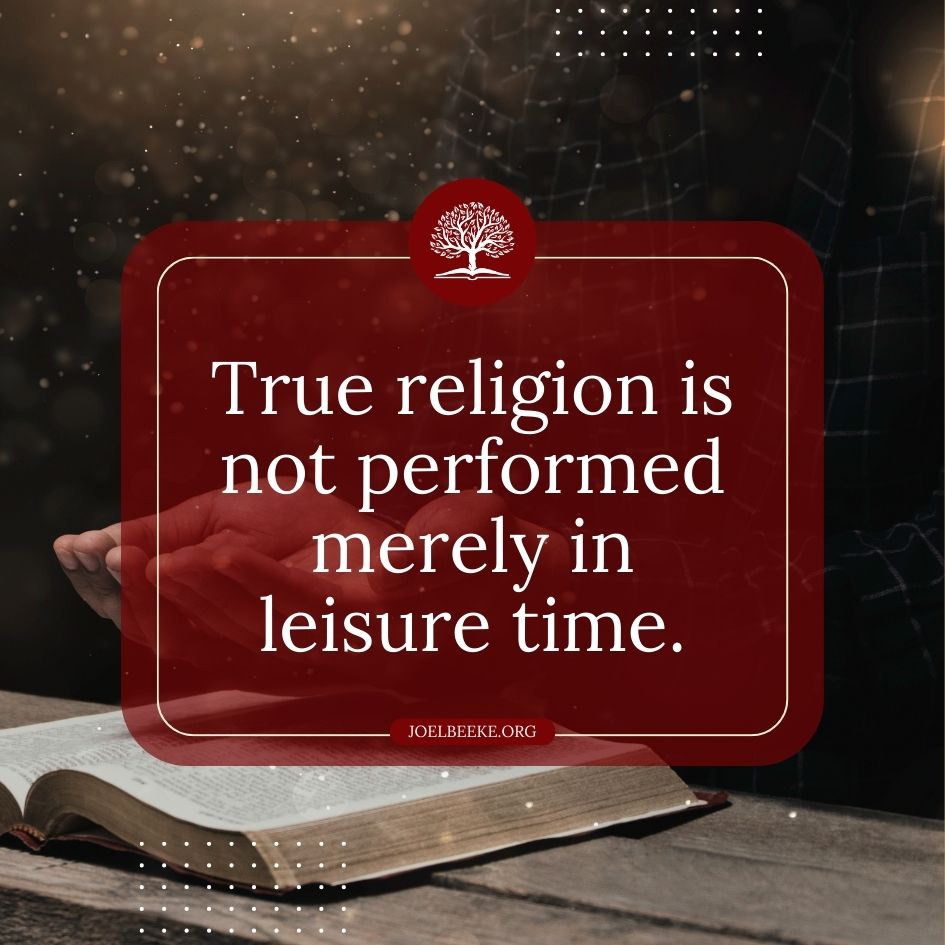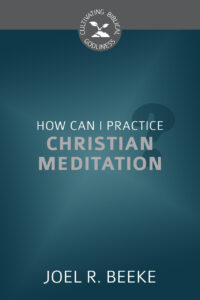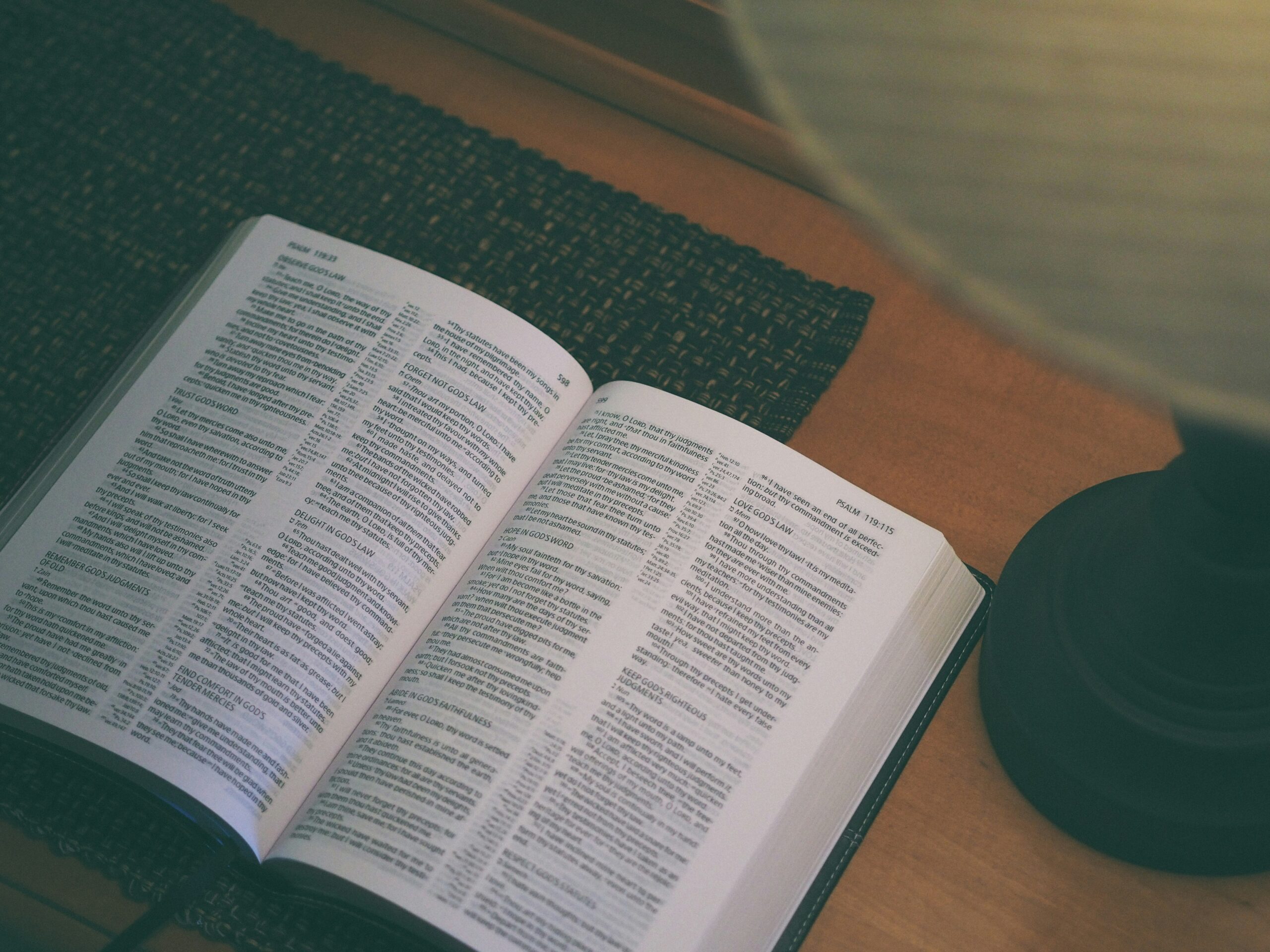Here is a summary of their responses to such obstacles:
Obstacle 1: Unfitness or ignorance. Such say they cannot confine their thoughts to a particular subject. Their “thoughts are light and feathery, tossed to and fro.”
Answer: Disability, ignorance, and wandering thoughts offer no exemption from duty. Your “loss of ability” does not imply God’s “loss of right.” Truth be told, you are probably unfit because you have neglected meditation and have not loved the truth. “Sinful indispositions do not disannul our engagements to God, as a servant’s drunkenness doth not excuse him from work,” Manton wrote. Remedy your problem by getting “a good stock of sanctified knowledge” and by “constant exercise” of that knowledge, all the while leaning on the Holy Spirit for assistance. You will find meditation becoming easier and sweeter in due course.
Obstacle 2: Busyness. Such say they are so harassed by this world’s responsibilities that they cannot find time to engage seriously in meditation.
Answer: True religion is not performed merely in leisure time. Great busyness should move us to more meditation, as we then have more needs to bring before God and to meditate on.
Obstacle 3: Spiritual lethargy. Such admit that though they may have good intentions, their soul is prone to divert itself from meditation.
Answer: Matthew 11:12 says heaven is the reward of “the violent [who] take it by force.” Why are you lazy in spiritual pursuits that can reap eternal rewards when you are not lazy in pursuing secular work in this world, which produces only temporary rewards? Spiritual “drowsiness shall clothe a man with rags” (Prov. 23:21). As Manton said, “It is better to take pains than to suffer pains, and to be bound with the cords of duty than with the chains of darkness.”
Obstacle 4: Worldly pleasures and friendships. Such say they don’t want to be righteous overmuch and hence do not wish to abandon vain entertainment and friends.
Answer: “The pleasures of the world discompose our souls, and unfit our bodies for the duties of meditation…. Remember this, the sweetness of religion is incomparably more than all the pleasures of sense,” wrote Bates.
Obstacle 5: Adverseness of heart. Such say they don’t like to be yoked to such a difficult task. Burdened with guilt, they fear being alone with God.
Answer: “Get your conscience cleansed by the hearty application of the blood of Christ,” Manton advised, then yoke yourself to the means of grace, including meditation (Ps. 19:14).
The consequences of omitting meditation are serious, Calamy warned. It leads to hardness of heart. Why do the promises and threatenings of God make so little impression on us? It’s because we fail to meditate on them. Why are we so ungrateful to God for His blessings? Why do His providences and afflictions fail to produce godly fruit in our lives? Why do we fail to benefit from the Word and sacraments, why are we so judgmental of others, why do we so feebly prepare for eternity? Isn’t it largely due to our lack of meditation?
Most Puritan pastors said that we must discipline ourselves to meditate. Yet comparatively few people, even in Puritan times, saw this as their duty. “Many are troubled,” wrote Baxter, “if they omit a sermon, a fast, a prayer in public or private, yet were never troubled that they have omitted meditation, perhaps all their life-time to this very day.”
Excerpt from
How Can I Practice Christian Meditation?
By Joel Beeke
Spiritual growth is a necessary part of the Christian’s life, but a failure to practice biblical meditation hinders such growth. Today, many believers misunderstand this core Christian discipline because they associate it with New Age spirituality and false religions. During the Puritan age, however, many ministers preached and wrote about meditation, and in this pamphlet, Joel R. Beeke guides us through their instruction on this subject. By God’s grace, “perhaps we can recover the biblical practice of meditation for our time.”
Contents:
The Definition, Nature, and Kinds of Meditation
The Duty and Necessity of Meditation
The Manner of Meditation
The Subjects of Meditation
The Benefits of Meditation
The Obstacles to Meditation
Conclusion: Self-Examination
Author
Joel R. Beeke (PhD, Westminster Seminary) is president and professor of systematic theology and homiletics at Puritan Reformed Theological Seminary; a pastor of the Heritage Reformed Congregation in Grand Rapids, Michigan; editor of Banner of Sovereign Grace Truth; editorial director of Reformation Heritage Books; and a prolific author.
Endorsement
“Joel Beeke has given us a wonderful gift to help us recover the lost art of Christian meditation. Unlike many practices of ‘meditation’ today that seek to empty the mind, Christian meditation calls us to fill our minds with the God-inspired, life-transforming, and mind-renewing Word of God. Take up and read, and then give a copy to your friends and family!” – Brian Cosby, senior minister of Wayside Presbyterian Church, Signal Mountain, Tennessee, and visiting professor at Reformed Theological Seminary, Atlanta
Cultivating Biblical Godliness Series
D. Martyn Lloyd-Jones once said, “The world today is looking for, and desperately needs, true Christians. I am never tired of saying that what the Church needs to do is not to organize evangelistic campaigns and attract outside people, but to begin herself to live the Christian life. If she did that, men and women would be crowding into our buildings. They would say, ‘What is the secret of this?’”
Many people who are new to the church need instruction in the most basic aspects of godly living. Even where churches are engaged heavily in discipleship, visitors and members often have gaps in their understanding and practice. One of the greatest needs of our time is for the Spirit of God to cultivate biblical godliness in us in order to put the glory of Christ on display through us, all to the glory of God the Father.
For these reasons, Joel Beeke and Ryan McGraw are coediting a series of booklets titled Cultivating Biblical Godliness. These booklets treat matters that are vital to Christian experience, and each contribution aims to address a wide variety of people and circumstances at a fundamental and introductory level. This includes teaching people what to believe in order to practice personal holiness as well as specific directions on how to cultivate biblical godliness in relation to issues that are common to God’s people.
The distinctive feature of this series is its experiential tone. While some booklet series aim to enlighten the mind, these booklets aim to warm the affections as well. The goal is to promote communion with the triune God and to transform the entire person in thought, speech, and behavior. To this end, we intend to include a wide range of authors whom the Spirit has blessed to skillfully stir up the church to personal holiness and affection to Christ through their preaching and writing ministries.
We need a Christianity that puts the transformative power of God in the gospel on display through developing a communion with God that is visible to the world. Our prayer is that through this series, the Lord would revive His church by producing Christians who are full of love for Christ, who deny themselves in order to follow Him at great personal cost, and who know the joys of walking with the triune God. This is the kind of Christianity that we need. This is the kind of Christianity that the triune God has used to turn the world upside down. May He be pleased to do so again.
Series Editors
Joel R. Beeke is President and Professor of Systematic Theology and Homiletics at Puritan Reformed Theological Seminary, a pastor of Heritage Netherlands Reformed Congregation in Grand Rapids, Michigan, and a prolific author.
Ryan M. Mcgraw is pastor of First OPC in Sunnyvale, CA. He is also author or The Day of Worship: Reassessing the Christian Life in Light of the Sabbath.











